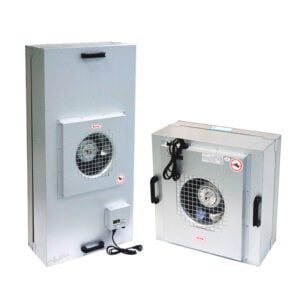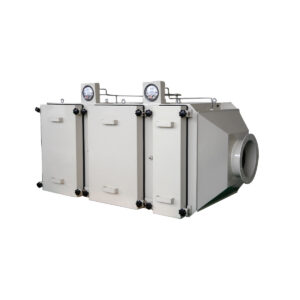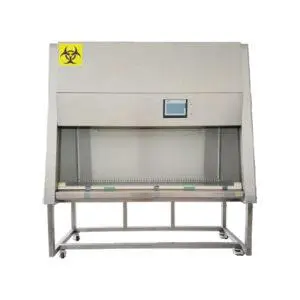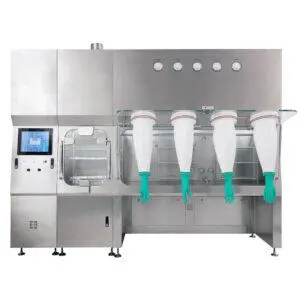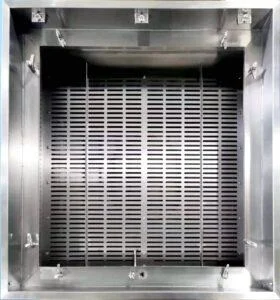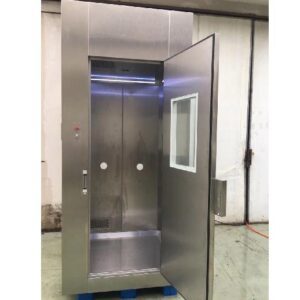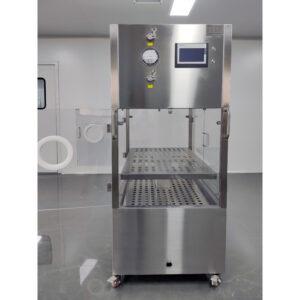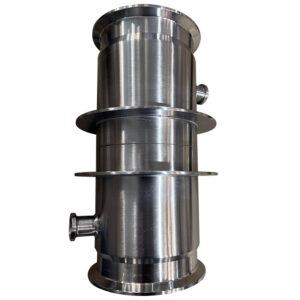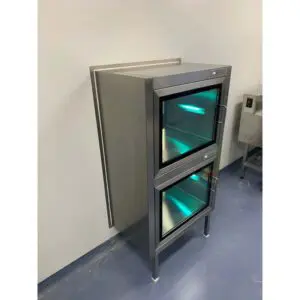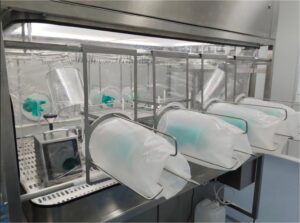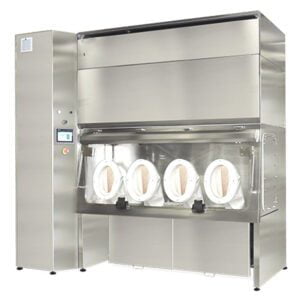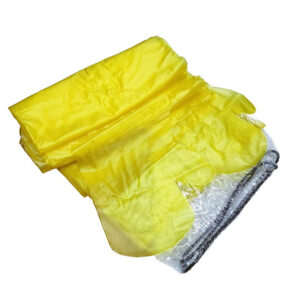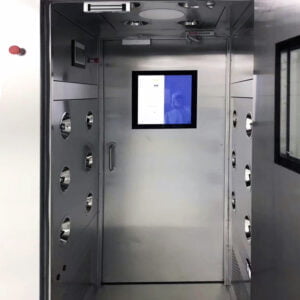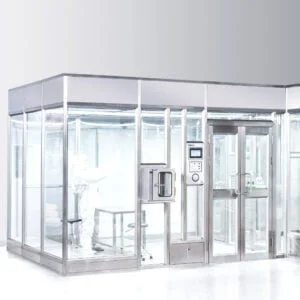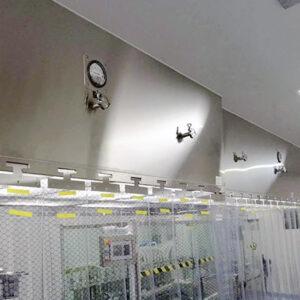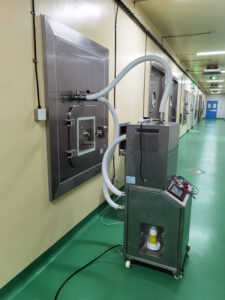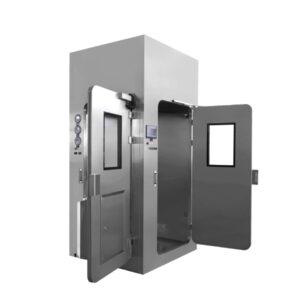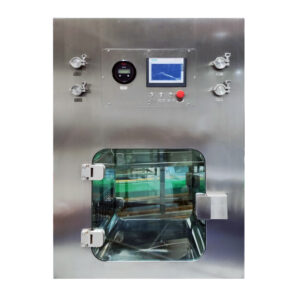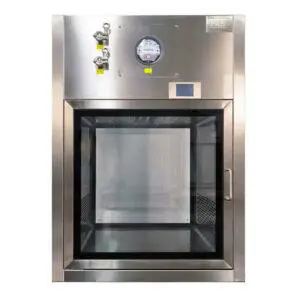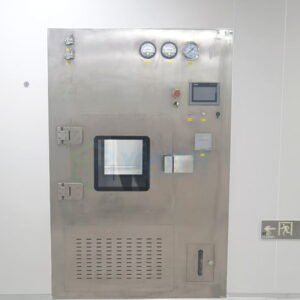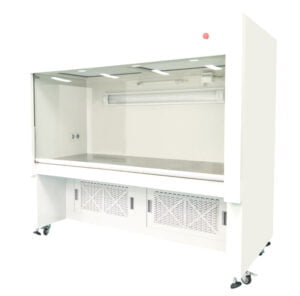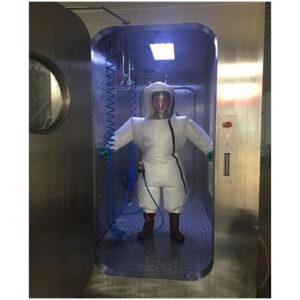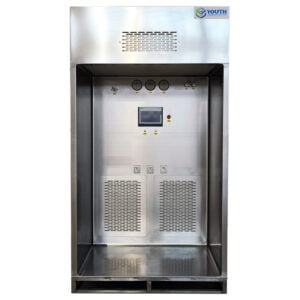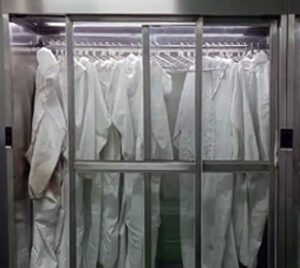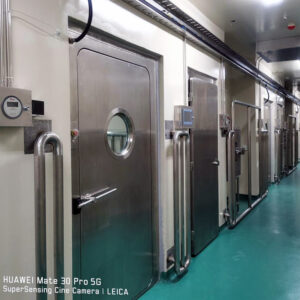Doğru seçimi yapmak HEPA filtre üreticisi 99,97% partikül giderme verimliliğine ulaşmak ile tüm üretim hatlarını durduran maliyetli kontaminasyon sorunlarıyla karşılaşmak arasındaki farkı yaratabilir. Hava kalitesinin ürün bütünlüğünü ve mevzuata uygunluğu doğrudan etkilediği sektörlerde bu karar daha da kritik hale gelir.
Bu zorluk basit spesifikasyonların ötesine geçmektedir. Üretim tutarsızlıkları, şirketlere binlerce kesinti süresine mal olan filtre arızalarına yol açabilirken, standartların altındaki kalite kontrol süreçleri, aynı görünen ancak gerçek dünya koşullarında büyük ölçüde farklı performans gösteren ürünlerle sonuçlanır. Son sektör verilerine göre, temiz oda kontaminasyon olaylarının yaklaşık 23%'si yetersiz filtrasyon sistemlerine veya kötü üretilmiş filtrelere dayanmaktadır.
Bu kapsamlı değerlendirme kılavuzu, sürekli olarak güvenilir, yüksek performanslı HEPA filtrasyon çözümleri sunan üreticileri belirlemek için gereken çerçeveyi, kriterleri ve içeriden bilgileri sağlar. Sektör liderlerini şüpheli tedarikçilerden ayıran teknik standartları, kalite değerlendirme metodolojilerini ve pratik hususları keşfedeceğiz.
Bir HEPA Filtre Üreticisini Günümüz Pazarında Öne Çıkaran Nedir?
Filtrasyon endüstrisi, önde gelen üreticilerin artık gelişmiş test tesislerine ve otomatik üretim sistemlerine büyük yatırımlar yapmasıyla önemli ölçüde gelişmiştir. YOUTH Temiz Teknoloji geleneksel üretim uzmanlığını en ileri kalite kontrol teknolojileriyle birleştirerek bu evrimi temsil etmektedir.
Üretim Hassasiyeti ve Tutarlılığı
Üst düzey üreticiler, tüm ürün serilerinde ±2% içinde toleransları korurken, daha düşük tedarikçiler genellikle 15%'yi aşan varyasyonlar gösterir. Bu hassasiyet, eşit kat aralığı sağlayan otomatik plise sistemlerinden ve zayıf noktaları ortadan kaldıran bilgisayar kontrollü dolgu macunu uygulamasından kaynaklanmaktadır.
Düzinelerce üreticiyi değerlendirme deneyimimize göre, en güvenilir olanlar iklim kontrollü üretim ortamları işletmekte ve üretim boyunca istatistiksel süreç kontrolü kullanmaktadır. Katlama sırasındaki ortam geriliminden yapıştırıcı sistemleri için kürleme sıcaklıklarına kadar her parametreyi belgelemektedirler.
Sertifikasyon ve Uyum Standartları
Birinci sınıf üreticiler genellikle temiz oda standartları için ISO 14644, havacılık uygulamaları için AS9100 ve farmasötik kullanım için FDA uyumluluğu dahil olmak üzere birden fazla sertifikaya sahiptir. Bununla birlikte, sertifikalar tek başına kaliteyi garanti etmez; bu standartların uygulanması ve sürekli bakımı gerçek performansı belirler.
| Sertifikasyon Türü | Sektörel Uygulama | Tipik Test Sıklığı |
|---|---|---|
| ISO 14644 | Temiz Odalar ve Kontrollü Ortamlar | Üç Aylık |
| EN 1822 | HEPA/ULPA Filtre Testi | Parti Başına |
| IEST-RP-CC001 | Kirlenme Kontrolü | Yıllık |
İnovasyon ve Teknoloji Entegrasyonu
Önde gelen üreticiler, gelirlerinin 8-12%'sini araştırma ve geliştirmeye yatırarak yeni nesil filtre ortamlarına ve akıllı izleme sistemlerine odaklanmaktadır. Bazıları artık gerçek zamanlı basınç farkı izleme ve öngörücü bakım uyarıları sağlayan IoT sensörleri içermektedir.
Bu yenilikler önemli avantajlar sunarken, aynı zamanda sağlam teknik destek gerektiren karmaşıklığı da beraberinde getirmektedir. En iyi üreticiler kapsamlı eğitim programları ve özel sektör gereksinimlerini anlayan özel uygulama mühendisleri sağlar.
Hava Filtresi Üretici Karşılaştırma Kriterleri Nasıl Değerlendirilir?
Etkili üretici karşılaştırması, ilk fiyat tekliflerinin ötesine geçen sistematik bir yaklaşım gerektirir. En başarılı değerlendirmeler, ilk değerlendirmeler sırasında genellikle göz ardı edilen faktörleri içeren toplam sahip olma maliyetine odaklanır.
Üretim Kapasitesi ve Ölçeklenebilirlik
Üretim kapasitesi, talebin en yoğun olduğu dönemlerde veya operasyonları ölçeklendirirken kritik hale gelir. Yerleşik üreticiler genellikle artan siparişleri karşılamak için 20-30% fazla kapasite bulundururken, daha küçük tedarikçiler yoğun dönemlerde 12 haftayı aşan teslim süreleriyle mücadele edebilir.
Yakın zamanda bir ilaç müşterisi, orijinal tedarikçisi yeni bir tesis için artan talebi karşılayamadığında bu zorluğu ilk elden yaşadı. 16 haftalık gecikme, geciken ürün lansmanlarında yaklaşık $2,3 milyona mal oldu ve tedarikçi istikrarının önemini vurguladı.
Teknik Destek ve Uygulama Uzmanlığı
Üstün üreticiler ürünlerden daha fazlasını sunar; proje yaşam döngüsü boyunca kapsamlı teknik danışmanlık sunarlar. Buna optimum filtre yerleşimi için hesaplamalı akışkanlar dinamiği modellemesi, özelleştirilmiş test protokolleri ve sürekli performans optimizasyonu dahildir.
Kalite Dokümantasyonu ve İzlenebilirlik
Her meşru HEPA filtre üreticisi bireysel filtre test sertifikaları, malzeme izlenebilirlik kayıtları ve parti üretim verileri dahil olmak üzere ayrıntılı dokümantasyon sağlar. Bu dokümantasyon, düzenleyici denetimler ve kalite incelemeleri sırasında çok önemli hale gelir.
En sofistike üreticiler artık kurcalamaya dayanıklı dokümantasyon zincirleri sağlamak için blok zinciri teknolojisini kullanıyor ve hammaddeden son kuruluma kadar benzeri görülmemiş bir izlenebilirlik sağlıyor.
Temel Temiz Oda Filtre Kalite Değerlendirme Standartları Nelerdir?
Temiz oda uygulamalarında kalite değerlendirmesi, gerçek çalışma koşulları altında performansı doğrulayan titiz test protokolleri gerektirir. Standart laboratuvar testleri önemli olmakla birlikte, dinamik ortamlardaki gerçek dünya performansını her zaman tahmin edemez.
Partikül Giderme Verimliliği Testi
Gerçek HEPA filtreler, 0,3 mikron partiküller için minimum 99,97% verimlilik göstermelidir, ancak önde gelen üreticiler genellikle 99,99% veya daha yüksek verimlilik elde etmektedir. Bununla birlikte, verimlilik testi koşulları sonuçları önemli ölçüde etkiler; sıcaklık, nem ve hava akış hızı performansı etkiler.
Gelişmiş üreticiler, çeşitli çevresel koşullarda çok noktalı verimlilik testleri gerçekleştirerek tek noktalı veriler yerine performans eğrileri sağlar. Bu yaklaşım, filtrelerin başlangıç koşullarında, mevsimsel değişimlerde ve uzun çalışma dönemlerinde nasıl performans gösterdiğini ortaya koyar.
Yapısal Bütünlük ve Dayanıklılık
Temiz oda filtreleri, sabit hava akışı, sıcaklık döngüsü ve titreşim nedeniyle önemli mekanik stresle karşı karşıyadır. Kalite değerlendirmesi, sıkıştırılmış zaman dilimlerinde aylarca çalışmayı simüle eden hızlandırılmış yaşlanma testlerini içermelidir.
Premium filtreler, uzun süreler boyunca 150% nominal hava akışına maruz kaldıklarında bile yapısal bütünlüğünü korur. Yüksek mukavemetli separatörler, güçlendirilmiş contalar ve sert temizlik kimyasallarına dayanabilen korozyona dayanıklı çerçeve malzemeleri kullanırlar.
Parçacık Dökülmesi ve Gaz Çıkışı
Kritik ancak genellikle gözden kaçan bir değerlendirme kriteri, filtrenin kendisinden partikül dökülmesini içerir. Düşük kaliteli filtreler malzeme bozulması, yapışkan bozulması veya separatör partikül salınımı yoluyla kontaminasyona katkıda bulunabilir.
| Test Parametresi | Kabul Edilebilir Seviye | Premium Performans |
|---|---|---|
| Parçacık Dökülmesi | <10 partikül/ft²/dk | <2 partikül/ft²/dk |
| Gaz çıkışı | <1% uçucu maddeler | <0,1% uçucu maddeler |
| Yapısal Sapma | Nominal basınçta <5mm | Nominal basınçta <2mm |
Önde gelen üreticiler, bu parametreleri doğrulamak için özel partikül sayaçları ve gaz kromatografi ekipmanı kullanarak filtrelerin temiz oda ortamlarını tehlikeye atmak yerine iyileştirmesini sağlar.
HEPA Üreticisi Değerlendirme Kriterleri Performansı Nasıl Etkiler?
Üreticileri seçmek için kullanılan değerlendirme kriterleri, uzun vadeli filtrasyon sistemi performansını ve işletme maliyetlerini doğrudan etkiler. Yalnızca ilk satın alma fiyatına odaklanan şirketler, erken arızalar ve bakım sorunları nedeniyle genellikle daha yüksek toplam maliyetlerle karşılaşırlar.
Üretim Süreci Kontrolü
En iyi üreticiler, üretim sırasında her kritik parametreyi izleyen kapsamlı süreç kontrol sistemleri uygulamaktadır. Bu sistemler, tüm üretim çalışmalarında tutarlı kaliteyi korumak için plise gerginliğini, dolgu macunu uygulama oranlarını ve kürleme sıcaklıklarını otomatik olarak ayarlar.
Önde gelen üreticilerin istatistiksel verileri, süreç kontrolünün manuel üretim yöntemlerine kıyasla varyansı 67%'ye kadar azalttığını göstermektedir. Bu tutarlılık, gerçek uygulamalarda doğrudan öngörülebilir performans ve daha uzun hizmet ömrü anlamına gelir.
Hammadde Kalitesi ve Tedariki
Olağanüstü HEPA filtrelerin temeli üstün hammaddelere dayanır. Premium üreticiler, önde gelen medya tedarikçileriyle özel ilişkiler sürdürür ve elyaf çapını, gözenekliliği ve gerilme mukavemetini doğrulayan gelen malzeme denetimleri gerçekleştirir.
Bununla birlikte, hammadde kalitesi birinci sınıftır - yüksek kaliteli filtre medyası standart alternatiflere göre 40-60% daha pahalıdır. En iyi üreticiler bu yatırımı daha uzun filtre ömrü ve üstün performans tutarlılığı ile haklı çıkarmaktadır.
Test ve Doğrulama Protokolleri
Kapsamlı test protokolleri, istisnai üreticileri ortalama tedarikçilerden ayırır. Sektör liderleri, lazer fotometre taraması kullanarak 100% filtreyi test ederken, daha düşük üreticiler yalnızca istatistiksel örnekleri test edebilir.
Gelişmiş testler termal döngü, titreşim direnci ve kimyasal uyumluluk değerlendirmelerini içerir. Bu testler, filtreler kritik uygulamalara ulaşmadan önce potansiyel arıza modlarını belirleyerek maliyetli kirlenme olaylarını önler.
Hangi Filtre Tedarikçisi Kalite Standartlarına Öncelik Vermelisiniz?
Kalite standartları güvenilir filtrasyon performansı için temel oluşturur, ancak hangi standartların gerçekten önemli olduğunu anlamak sektöre özgü bilgi ve pratik deneyim gerektirir.
ISO 29463 ve EN 1822 Uyumluluğu
Bu standartlar HEPA ve ULPA filtreleri için test metodolojilerini ve sınıflandırma sistemlerini tanımlamaktadır. Bununla birlikte, uyumluluk seviyeleri üreticiler arasında önemli ölçüde farklılık göstermektedir - bazıları minimum gereksinimleri karşılarken, diğerleri standartları önemli marjlarla aşmaktadır.
Premium üreticiler genellikle minimum gerekliliklerin 2-3 sınıflandırma seviyesi üzerinde verimlilik derecelerine ulaşır. Örneğin, önde gelen bir üreticinin H14 (99,995% verimli) olarak derecelendirdiği bir filtre aslında H15 seviyelerinde (99,9995% verimli) performans gösterebilir.
Kalite Yönetim Sistemi Entegrasyonu
Etkili kalite standartları, hammadde tedarikinden nihai teslimata kadar tüm tedarik zinciri boyunca entegre olur. En güvenilir üreticiler tedarikçi kalifikasyonu, süreç kontrolü ve sürekli iyileştirme girişimlerini ele alan kapsamlı kalite yönetim sistemleri işletmektedir.
Sürekli İzleme ve İyileştirme
Statik kalite standartları temel gereksinimleri sağlar, ancak dinamik iyileştirme süreçleri sürekli gelişmeyi garanti eder. Önde gelen üreticiler, ürünlerini ve süreçlerini sürekli olarak iyileştirmek için saha performans verilerini, müşteri geri bildirimlerini ve arıza modlarını analiz eder.
Yakın zamanda yarı iletken üretimi yapan bir müşteri, filtre tedarikçisi nem seviyeleri ile filtre verimliliğindeki düşüş arasında bir korelasyon tespit ettiğinde bu yaklaşımdan yararlandı. Üreticinin proaktif malzeme modifikasyonu, birden fazla tesiste potansiyel kontaminasyon sorunlarını önledi.
Hava Filtrasyonu Üretici Kılavuzu Seçim Süreci Nasıl Yürütülür?
Seçim süreci, teknik kabiliyetler, kalite sistemleri, finansal istikrar ve uzun vadeli destek taahhütleri gibi birçok faktörün dengelenmesini gerektirir. Başarılı bir navigasyon, yapılandırılmış değerlendirme metodolojileri ve net karar kriterleri gerektirir.
Değerlendirme Çerçevelerinin Oluşturulması
Etkili değerlendirme, uygulama gereksinimlerine göre farklı kriterlere ağırlık veren kapsamlı çerçevelerle başlar. Farmasötik veya yarı iletken üretimindeki kritik uygulamalar tipik olarak kalite ve güvenilirliğe maliyetten daha fazla öncelik verirken, ticari uygulamalar değer ve kullanılabilirliği vurgulayabilir.
Tedarikçi Denetimi ve Tesis Değerlendirmeleri
Yerinde tesis değerlendirmeleri, yalnızca dokümantasyon incelemesi yoluyla elde edilemeyecek bilgiler sağlar. Bu değerlendirmelerde üretim ekipmanlarının durumu, kalite kontrol prosedürleri, çalışanların eğitim programları ve genel operasyonel olgunluk değerlendirilmelidir.
Yakın tarihli bir tesis değerlendirmesi sırasında, mikron altı partikülleri doğru bir şekilde ölçemeyen eski test ekipmanı kullanan bir üretici keşfettik. Belgeleri eksiksiz görünse de, gerçek kalite kontrol yetenekleri kritik uygulamalar için yetersizdi.
Uzun Vadeli Ortaklık Hususları
En başarılı üretici ilişkileri, işlemsel etkileşimlerin ötesine geçerek karşılıklı fayda sağlayan stratejik ortaklıklara dönüşür. Bu ilişkiler işbirliğine dayalı geliştirme, acil durumlarda öncelikli destek ve yeni nesil teknolojilere erişim sağlar.
| Ortaklık Avantajları | Kısa Vadeli Tedarikçiler | Stratejik Ortaklar |
|---|---|---|
| Acil Durum Desteği | Sınırlı kullanılabilirlik | 7/24 müdahale ekibi |
| Özel Geliştirme | Yalnızca standart ürünler | Kişiye özel çözümler |
| Teknik Eğitim | Temel dokümantasyon | Kapsamlı programlar |
HEPA Filtre Üretimindeki Gizli Maliyetler Nelerdir?
Gizli maliyetlerin anlaşılması bütçe aşımlarını önler ve toplam sahip olma maliyetinin doğru hesaplanmasını sağlar. Bu maliyetler genellikle filtre kullanım ömrü boyunca ilk satın alma fiyatlarını aşar.
Kalite Kontrol ve Test Genel Giderleri
Kapsamlı kalite kontrol, üretim maliyetlerine 15-25% ekler, ancak pahalı saha arızalarını önler. Fiyatları düşürmek için testleri en aza indiren üreticiler genellikle daha yüksek arıza oranlarına ve daha kısa hizmet ömrüne sahip ürünler sunarlar.
Mevzuata Uygunluk ve Dokümantasyon
Farmasötik ve tıbbi cihaz uygulamalarında mevzuata uygunluğun sürdürülmesi kapsamlı dokümantasyon, özel testler ve periyodik denetim gerektirir. Bu gereklilikler önemli bir ek yük getirse de kritik uygulamalarda ürün güvenilirliğini sağlar.
Tedarik Zinciri Risk Yönetimi
Küresel tedarik zinciri aksaklıkları risk yönetimi stratejilerinin önemini vurgulamıştır. Önde gelen üreticiler stratejik envanter seviyelerini ve çeşitlendirilmiş tedarikçi ağlarını koruyarak maliyetleri artırmakta ancak tedarik sürekliliğini sağlamaktadır.
Bu risk yönetimi stratejileri başlangıç maliyetlerini 8-12% artırırken, son kullanıcılara üretim gecikmelerinde milyonlara mal olabilecek tedarik kesintilerini önler.
Önde Gelen Üreticiler Tutarlı Kalite Kontrolünü Nasıl Sağlıyor?
Kalite kontrol tutarlılığı, sektör liderlerini marjinal tedarikçilerden ayırır. En güvenilir üreticiler, üretimin her yönünü izleyen, ölçen ve sürekli olarak iyileştiren kapsamlı sistemler uygular.
Otomatik Test ve Muayene Sistemleri
Gelişmiş üreticiler, filtre yüzey alanının 100%'sini test eden otomatik lazer tarama sistemleri kullanmakta ve manuel incelemede görülemeyen kusurları tespit etmektedir. Bu sistemler 0,01% kadar küçük verimlilik değişimlerini ve 0,1 mm'den küçük yapısal kusurları tespit eder.
Otomatik sistemler ayrıca insan hatalarını ortadan kaldırır ve üretim hacmi veya zaman baskısından bağımsız olarak tutarlı test koşulları sağlar. Bu sistemlerden gelen veriler proses kontrol sistemlerine geri beslenerek kapalı döngü kalite yönetimi oluşturur.
İstatistiksel Süreç Kontrol Uygulaması
Önde gelen üreticiler üretim boyunca istatistiksel süreç kontrolü uygulayarak plise aralığı, dolgu macunu kalınlığı ve çerçeve boyutları gibi parametreleri izler. Kontrol çizelgeleri, spesifikasyon dışı ürünlerle sonuçlanmadan önce eğilimleri belirler.
Sürekli İyileştirme Kültürü
En iyi üreticiler, sürekli gelişime odaklanan kültürleri teşvik ederek çalışanları iyileştirme fırsatlarını belirlemeye teşvik eder. Düzenli eğitim programları, çalışanların kalite gerekliliklerini ve standartların korunmasındaki rollerini anlamalarını sağlar.
Kalite kontrol mükemmelliği ekipman, eğitim ve sistemlere önemli yatırımlar yapılmasını gerektirir. Ancak bu yatırım, sahadaki arızaların azalması, müşteri memnuniyetinin artması ve itibarın yükselmesi ile meyvelerini verir.
Doğru HEPA filtre üreticisinin seçilmesi, teknik yeteneklerin, kalite sistemlerinin ve uzun vadeli destek taahhütlerinin dikkatli bir şekilde değerlendirilmesini gerektirir. En başarılı kararlar, tutarlı kalite kontrolü ve kapsamlı müşteri desteği sunan üreticilere öncelik vererek başlangıç maliyetleri ile toplam sahip olma giderlerini dengeler.
Önde gelen üreticiler, üstün test protokolleri, gelişmiş kalite yönetim sistemleri ve sürekli iyileştirme taahhüdü ile kendilerini öne çıkarmaktadır. Birinci sınıf üreticiler daha yüksek başlangıç fiyatlarına sahip olsalar da, ürünleri genellikle daha uzun hizmet ömrü ve daha düşük arıza oranları sayesinde daha düşük toplam sahip olma maliyetleri sunar.
Değerlendirme sürecinde kapsamlı dokümantasyon sağlayan, sağlam kalite kontrol sistemlerini sürdüren ve ürün yaşam döngüsü boyunca teknik destek sunan üreticilere öncelik verilmelidir. Araştırma ve geliştirmeye yatırım yapan, yeterli üretim kapasitesine sahip olan ve finansal istikrar gösteren tedarikçilerle ortaklık kurmayı düşünün.
En yüksek düzeyde güvenilirlik ve performans gerektiren uygulamalar için geli̇şmi̇ş temi̇z oda fi̇ltreleme çözümleri̇ en son üretim teknolojilerini ve kalite kontrol sistemlerini bünyesinde barındırmaktadır.
HEPA filtre üreticilerini değerlendirirken hangi özel zorluklarla karşılaştınız ve bu deneyimler seçim kriterlerinizi nasıl etkiledi?
Sıkça Sorulan Sorular
Q: HEPA filtre üreticisi değerlendirmesi nedir ve neden önemlidir?
C: HEPA filtre üreticisi değerlendirmesi, gerekli standartları karşılayan yüksek kaliteli HEPA filtreleri ürettiklerinden emin olmak için potansiyel tedarikçileri değerlendirme sürecidir. Bu değerlendirme çok önemlidir, çünkü filtrelerin 0,3 mikron kadar küçük partiküllerin en az 99,97% gideriminde gerekli verimliliği elde etmesini garanti eder. Güvenilir bir üreticinin seçilmesi, filtrelerin temiz odalardan HVAC sistemlerine kadar çeşitli uygulamalarda etkili bir şekilde çalışmasını, hava saflığını ve güvenliğini korumasını sağlar.
Q: Bir HEPA filtre üreticisi değerlendirmesinde hangi temel faktörler göz önünde bulundurulmalıdır?
C: Önemli faktörler şunlardır:
- Üretici Deneyimi: HEPA filtre üretiminde kanıtlanmış geçmiş performans.
- Sertifikalar: EN1822 ve DOE gereklilikleri gibi standartlara uygunluk.
- Üretim Kapasitesi: Kaliteden ödün vermeden talebi karşılama becerisi.
- Kalite Güvence Programları: Sağlam test, denetim ve dokümantasyon uygulamaları.
- Müşteri Geri Bildirimi: Önceki müşterilerden gelen olumlu yorumlar ve referanslar.
Bu faktörlerin değerlendirilmesi, seçtiğiniz üreticinin sürekli olarak verimli ve dayanıklı HEPA filtreler sunmasını sağlamaya yardımcı olur.
Q: Değerlendirme sürecinde HEPA filtrelerin kalitesi nasıl test ediliyor?
C: Kalite değerlendirmesi birkaç test içerir:
- Sızma Testi: Filtrelerin 0,3 mikron büyüklüğündeki partiküllerin en az 99,97%'sini yakalamasını sağlar.
- Görsel İnceleme: Üretim hatalarını ve malzeme gerekliliklerine uygunluğu kontrol eder.
- Yerinde Sertifikasyon: Filtre sistemindeki sızıntıları veya hasarları tespit etmek için kurulum sonrası testler.
- Standart Uyumluluk Testleri: EN1822 fabrika testi ve ISO 14644-3 yerinde doğrulama gibi.
Bu testler, HEPA filtrelerin sıkı performans ve dayanıklılık kriterlerini karşıladığını doğrulamaktadır.
Q: HEPA filtre üreticilerinin değerlendirilmesinde kalite güvencesi nasıl bir rol oynuyor?
C: Kalite güvencesi (QA), tutarlı üretim ve endüstri standartlarına uygunluğun sağlanmasında kritik öneme sahiptir. Bir üreticinin QA programı şunları yapmalıdır:
- Tüm üretim adımlarını ve malzeme kaynaklarını belgeleyin.
- ASME AG-1 ve DOE yönergeleri gibi standartlara göre titiz test protokollerini takip edin.
- İzlenebilirlik için kalite verilerini üretim lotuna göre takip edin.
- Uygunsuzlukları düzeltici faaliyetlerle derhal ele alın.
Güçlü QA programları, HEPA filtrelerin güvenilirliği ve uzun ömürlülüğü konusunda güven sağlar.
Q: HEPA filtre üreticisi değerlendirmesinde EN1822 gibi bir sertifikasyon neden önemlidir?
C: EN1822 sertifikası, bir HEPA filtrenin verimliliğini ve performansını hassas laboratuvar testleriyle doğrulayan, dünya çapında tanınan bir standarttır. Genellikle lazer tarama testi yoluyla her filtrenin beklenen ultra ince partikülleri gidermesini sağlar. Sertifikalı filtreler sağlayan üreticiler, sağlık hizmetleri veya temiz oda ortamları gibi kritik uygulamalar için gerekli olan en yüksek kalite standartlarına bağlılık gösterir.
Q: HEPA filtrelerin performansı kurulumdan sonra değişebilir mi ve bu durum değerlendirmede nasıl ele alınıyor?
C: Evet, nakliye, kullanım ve kurulum gibi faktörler filtre bütünlüğünü etkileyebilir. Bu nedenle, sızıntıları veya hasarı tespit etmek için kurulumdan sonra genellikle yerinde test önerilir. Bu değerlendirme adımı, filtreyi ve muhafazasını taramak için özel aerosoller kullanır ve gerçek dünya koşullarında performansın devam etmesini sağlar. Kapsamlı bir HEPA filtre üreticisi değerlendirmesi, üreticinin bu tür kurulum sonrası kalite kontrollerini desteklediğini veya tavsiye ettiğini doğrulamayı içerir.
Dış Kaynaklar
- En İyi HEPA Filtre Üreticisini Seçme - Kalite, sertifikalar, üretim kapasitesi ve müşteri geri bildirimlerinin değerlendirilmesi de dahil olmak üzere HEPA filtre üreticilerinin nasıl değerlendirileceğini detaylandıran kapsamlı bir kılavuz.
- HEPA Filtrelerin Test Edilmesi: Fabrika ve Saha için Kılavuzlar - AAF - Bu belge, endüstride kullanılan prosedürler ve kalite değerlendirme kriterleri de dahil olmak üzere HEPA filtre fabrika ve saha testleri için pratik kılavuzlar sağlar.
- HEPA FİLTRENİZİ ANLAMAK - HEPA filtre verimlilik standartlarını, sertifikalarını ve kalite değerlendirme ve üretici değerlendirmesinde yer alan temel faktörleri açıklayan derinlemesine bir kitapçık.
- HEPA Filtre Verimlilik Testi | Performans Ölçütleri Kılavuzu - HEPA filtreler için performans ölçümleri, uluslararası test standartları ve modern değerlendirme teknikleri hakkında ayrıntılı bir kaynak.
- HEPA Filtre Test, Değiştirme ve Bakım Kılavuzu - Bu kılavuz, HEPA filtre testi, sertifikasyonu, değiştirme zamanlaması ve tutarlı kaliteyi sağlamak için en iyi bakım uygulamalarının temellerini kapsar.
- ABD ÇEVRE KORUMA AJANSI: Evdeki Hava Temizleyicileri Kılavuzu - Genel hava temizleyicilere odaklanmış olsa da, ABD EPA'nın bu resmi kılavuzu, HEPA filtreler için temel değerlendirme faktörlerini ve konut ortamlarındaki etkinliklerini değerlendirmek için en iyi uygulamaları içerir.
İlgili İçerikler:
- HEPA Filtre Testi: Optimum Performansın Sağlanması
- HEPA Filtre Verimliliği: Hava Arıtmayı En Üst Düzeye Çıkarma
- HEPA Filtre Standartları: Küresel Yönetmelikler Kılavuzu
- HEPA Filtre Sistemleri | Klima Santrali Ekipmanları Teknik Özellikleri
- Biyogüvenlik Kabinlerinde HEPA Filtreler: Derin Bir Dalış
- HEPA Filtre Yapısı: Malzemeler ve Tasarım
- HEPA Filtre Verimlilik Testi | Performans Ölçütleri Kılavuzu
- Laminer Akış Üniteleri için ULPA ve HEPA Filtreler
- HEPA Muhafaza Kutularının Verimlilik Derecesi Nedir?


